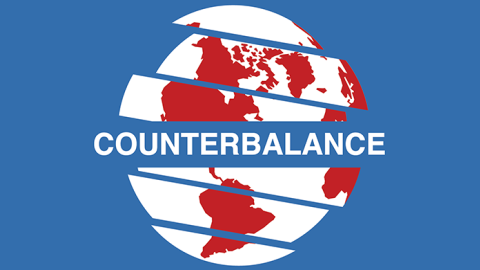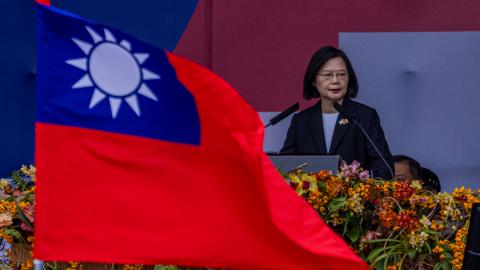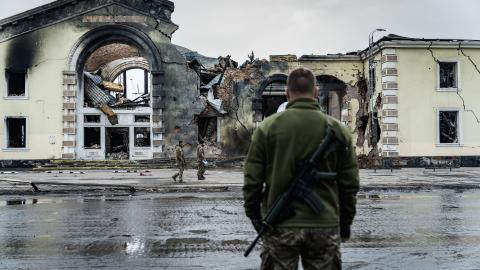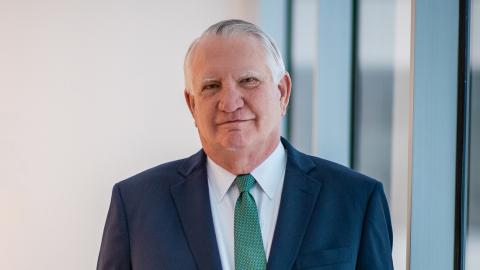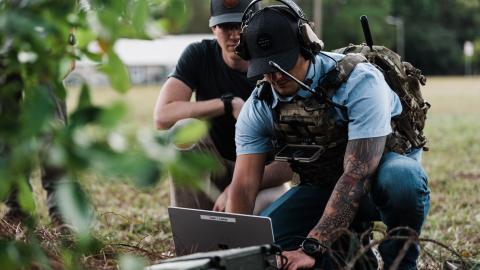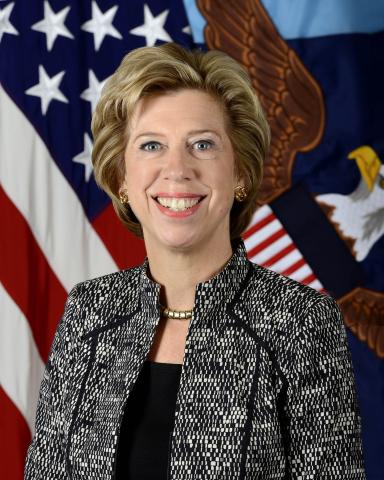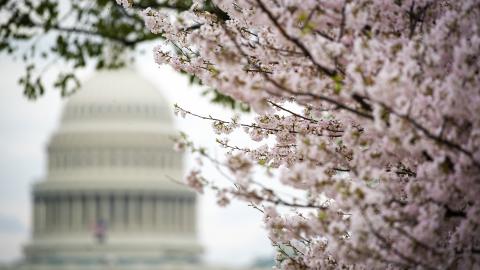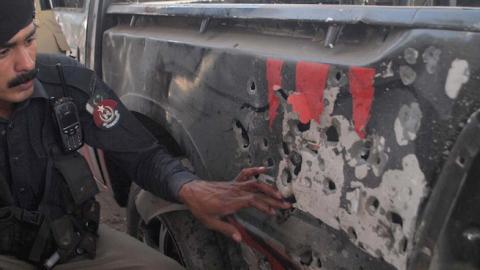Conventional wisdom expected the Taliban to pose a security challenge following the withdrawal of U.S. and NATO troops from Afghanistan. The Obama Administration and Afghan President Ashraf Ghani pinned hopes on Pakistan, the Taliban’s traditional backer, in arranging talks with the Taliban to manage the extent of the threat posed by the insurgency. The talks are still muddling through and Taliban attacks in provinces bordering Pakistan have increased.
The greater and more complicating threat to order in the region, however, comes from splintering of the Taliban and the possible emergence of factions affiliated with ISIS. Although Pakistan continues to hold out the prospects of a negotiated settlement with the Afghan Taliban, its ability to bring a unified Taliban movement to the negotiating table is very much in doubt.
The U.S. had, by and large, ignored the Taliban when they emerged in 1993 out of the anti-Soviet Mujahideen movement with full Pakistani backing. Their atrocities against the Afghan people and their decision to host Osama bin Laden and al-Qaeda resulted in international sanctions, leaving Pakistan as the only country with full diplomatic relations with the Taliban regime until 9/11.
Although Pakistan was forced to join the international coalition against al-Qaeda and the Taliban, it did not break its ties with the Taliban. Most Taliban leaders ended up on the Pakistani side of the 1398 miles long Pakistan-Afghan border, with tribes that straddle the two countries. After failing to coerce Pakistan into action against the Taliban, the Obama Administration embraced the idea of negotiating with the Taliban through Pakistan.
Providing Taliban a safe haven, while at the same time denying its role as their sponsor, has created many problems for Pakistan. Afghan security forces and intelligence services do not trust Pakistan because of its ties to Taliban leaders, while the Taliban look upon Pakistan’s Inter-Services Intelligence (ISI) with suspicion because of its connection with the United States.
Although the Taliban continue to depend upon the ISI for support, it is now emerging that at least some Taliban leaders would rather follow an independent course. The reclusive Taliban founder, Mullah Omar, is believed to have died in a Pakistani hospital at least several months before his death was officially announced. The ISI was likely organizing his succession while keeping his death secret and facilitating talks between Americans and the dead leader’s ostensible representatives.
The new Taliban leader, Mullah Akhtar Mansour, lacks the stature of Mullah Omar. Although he is believed to have support of most Taliban field commanders, in addition to being able to buy loyalty with Pakistani financial support, Mansour faces the prospect of local leaders in parts of Afghanistan going their own way.
At least some former Taliban commanders have pledged loyalty to ISIS. There have been clashes between rival jihadis, who can also be expected to increase their attacks on remaining foreign forces and the Afghan National Army in an attempt to raise their profile and gain recruits.
Although Pakistan itself now faces attacks from Tehrik-e-Taliban Pakistan (TTP), an offshoot of the Afghan movement focused on creating an Islamist enclave in Pakistan, its military remains unwilling to give up its decades-long pursuit of paramountcy over Afghanistan. The result is partial Pakistani support for Taliban factions without full control over their actions.
Faced with international pressure, as well as growing threats from the TTP, Pakistan has cleared out some known jihadist sanctuaries in North Waziristan, which has deprived Afghan groups, such as the Haqqani network, of their historic base of operations. But Pakistan has neither acted against, nor militarily confronted, the Afghan Taliban leaders, and the Haqqani network is believed to have relocated to other parts of Pakistan’s tribal areas (FATA.)
Pakistan’s policy in the immediate future will be to engage with the government of Afghanistan and the United States, with the stated objective of negotiating a settlement with the Afghan Taliban. At the same time, Pakistan will continue to try to militarily change the situation on the ground in Afghanistan in an effort to force the world to deal with de facto Taliban control of parts of the country as fait accompli.
In Islamabad’s view, this tactic could enable Pakistan to determine the final terms of an Afghan settlement, resulting in India’s exclusion from Afghanistan and the country being acknowledged as Pakistan’s sphere of influence. But the outcome is unlikely to fit any neat plans. The Taliban splinter groups could step up attacks to a point where the U.S. and NATO might be forced, again, to reconsider a complete withdrawal from Afghanistan.
